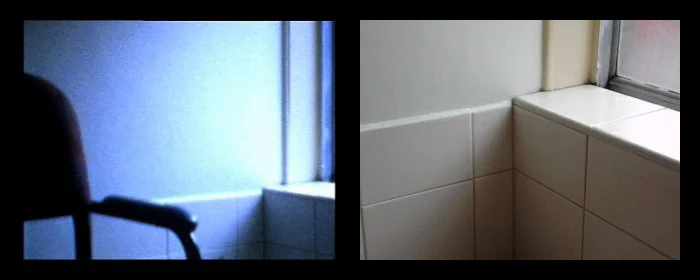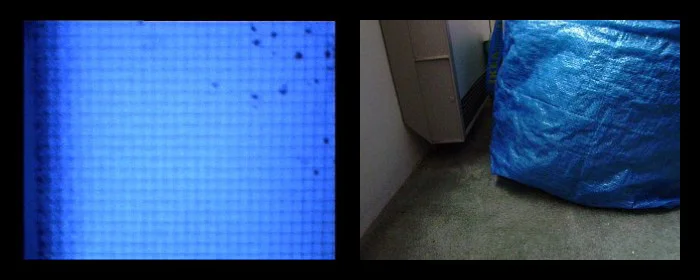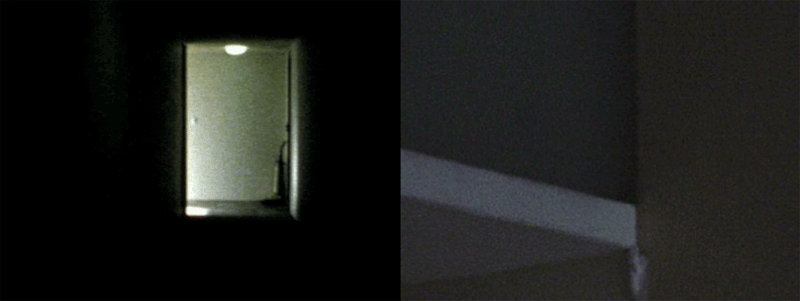SOMEONE ELSE’S HOUSE
27 October - 13 November 2010
Erin Crouch + Rylie James
Loss, Space and the Uncanny
These films, recorded in the former apartment of one of the artists on the day of vacating the property, explore the uncanny affects of loss with regard to space. The apartment, a personal space the artists shared, was documented by each without premeditation or knowledge the other would do the same, creating an aleatoric eulogy for the loss of a home. As such, the work attempts to make present an absence, bringing multiple, conflicting and shared perspectives to bear on this loss.
Exploring a site in transition that was once filled with personal belongings but is now devoid of any sense of intimacy, the piece opens a liminal space between the already-over and the not-yet, where the viewer is invited to reconstruct the site visually, emotionally and psychologically. It gestures towards what was lost – the home – which can now only be disclosed by its absence.
If this gesture is an attempt to preserve what was lost then it is self-consciously futile, for in its failure it will articulate something essential to the experience of loss and transition with regard to personal spaces: that place, seemingly fixed and constant, is in fact always already in a state of becoming.
The spectral nature of absence, the disjoint between perspectives, and the disembodied gaze of each film coupled with the banality their object also lends the work an uncanny quality – the becoming-strange of this once familiar space through the experience of loss. For Freud, this sense of the uncanny is “the fundamental propensity of the familiar to turn on its owners, suddenly to become de-familiarised, de-realised, as if in a dream” and articulates the feeling of estrangement when an object or place is experienced as simultaneously foreign yet familiar. From the German das Unheimliche, the uncanny literally translates to ‘un-homely’, and marks the point at which one’s home, whether physical or metaphorical, becomes disconcertingly other. With this work, Erin Crouch and Rylie James Thomas, also attempt to map that space.
Chance, Repetition and Multiplicities
For Freud, the uncanny is linked to the experience of repetition and to notions that question the autonomy of the subject. Whether you call this chance or fate or chaos, that which questions our agency – that suggests a determinacy or indeterminacy that subverts our ability to choose – is often experienced as both familiar yet radically other.
The two films presented here were made with no determinate intention, disrupting the idea of artistic autonomy and, through their repetition, multiplying the perspectives the work affords. Since each film is varied in duration, again the result of chance, when looped, they never synchronise into any regular pattern. Each iteration creates a new sequence with unique emotional and visual pairings, juxtapositions and meanings, offering a multiplicity of ways to experience the work that exceed of any one point of view. Like for Deleuze, each repetition is a creation of some unique multiplicity. And the films combine and contrast in ways that can be experienced simultaneously as random, and, in the context of a gallery (a space in which meaning is sought and often expected), highly determined.
There is no true beginning or end to the piece, and no single experience of the work is complete. The perspectives that attempt apprehend it are fragmentary and defy closure and, like something lost and relegated to memory, never capture their object entirely or perhaps even accurately. This catalogue is no exception.
Andrew David Stapleton - 2010



